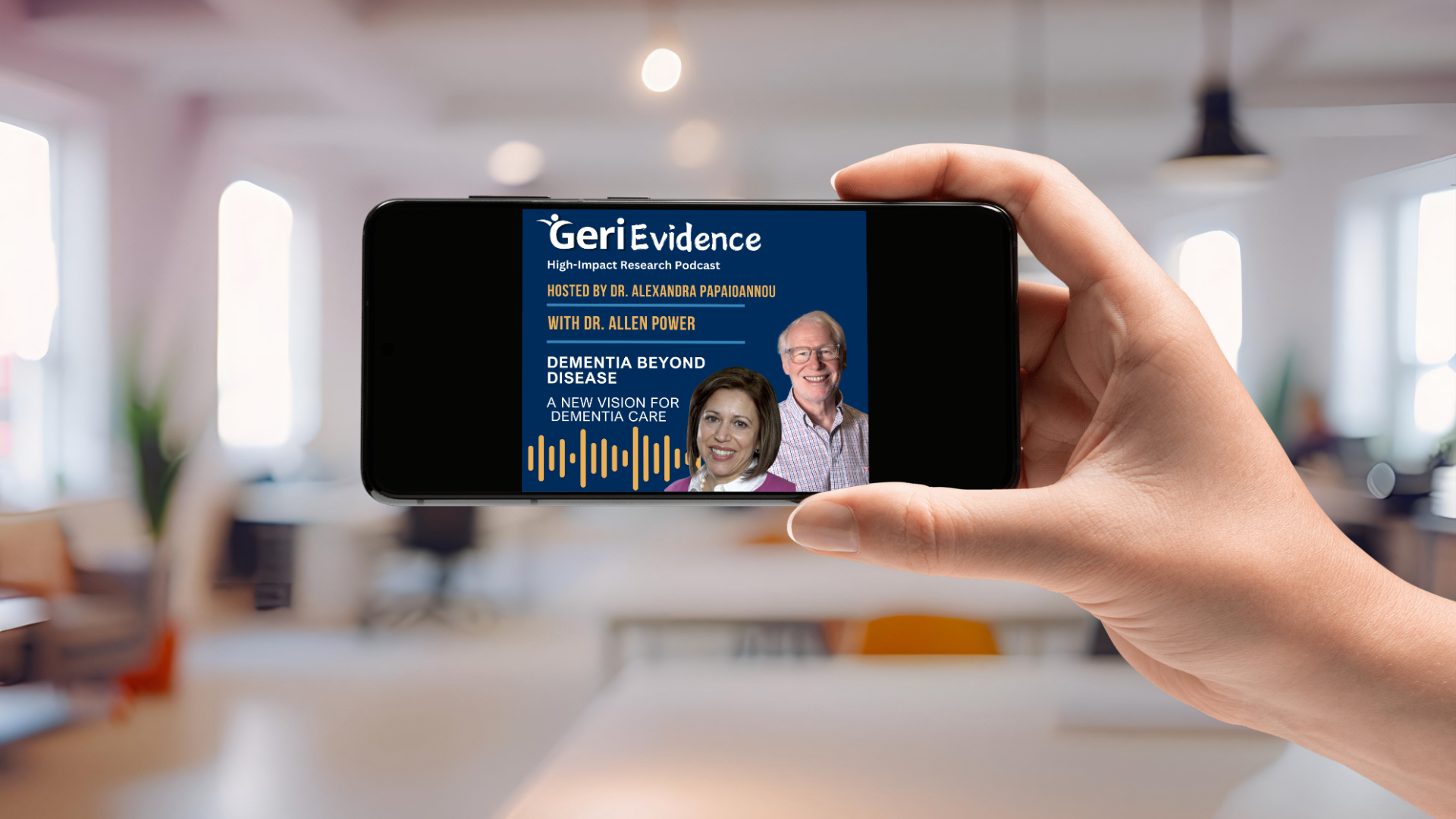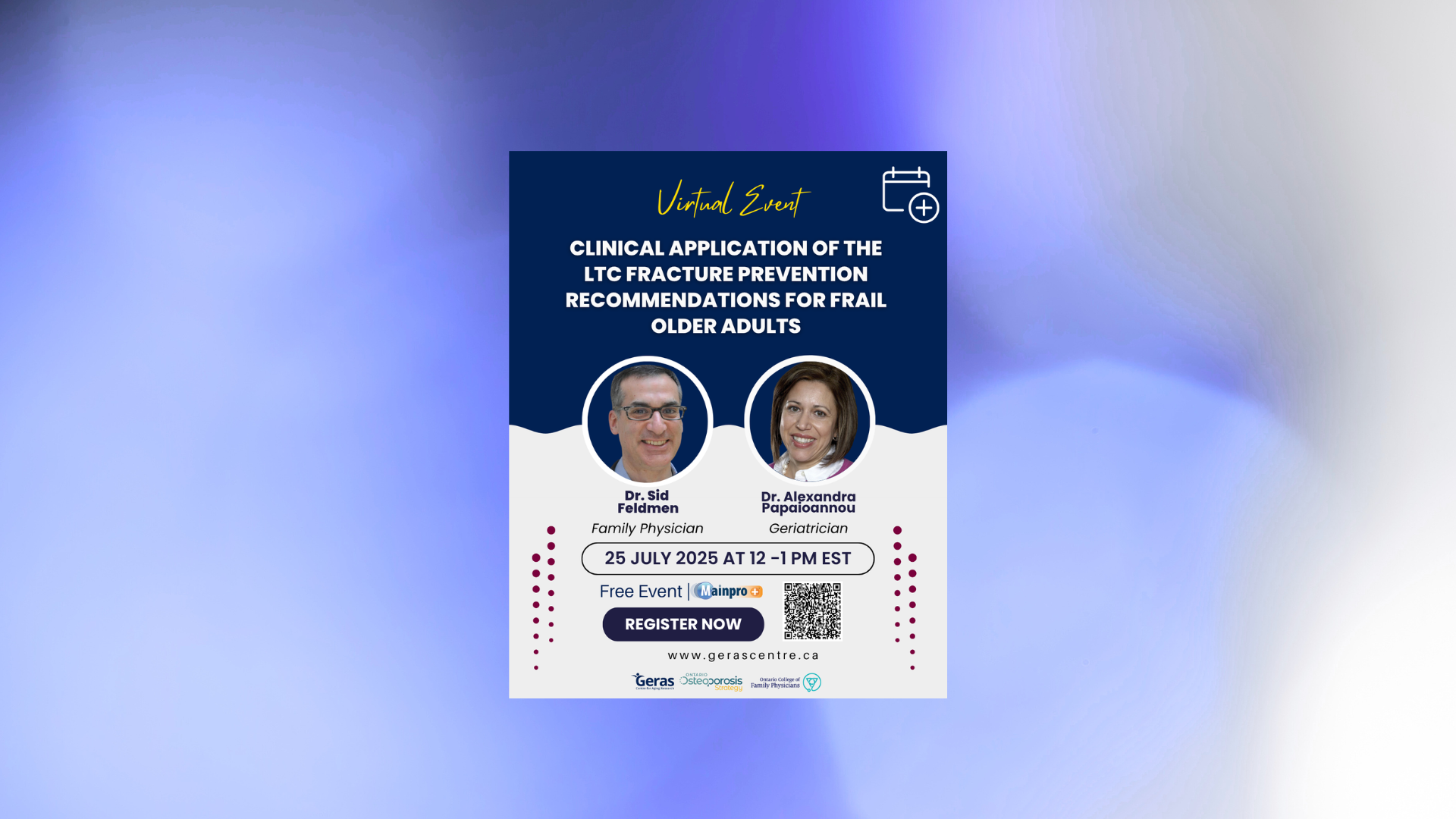Thousands of Canadians are flocking to a free e-learning lesson developed by Hamilton Health Sciences (HHS) psychiatrist and researcher Dr. Anthony Levinson for leading-edge information on reducing their risk of dementia. Levinson, director of McMaster University’s division of e-learning innovation, developed this highly-engaging, evidence-based e-lesson with that team and Dr. Richard Sztramko, a former HHS geriatrician now in British Columbia.
“Feedback from visitors indicates that they find the e-learning relevant, easy to understand, useful, and beneficial.” — Dr. Anthony Levinson
Levinson is on the leadership council for the Geras Centre for Aging Research, a research institute at HHS that’s affiliated with McMaster University, and Sztramko is a member.
Levinson is also a psychiatrist at HHS Juravinski Hospital and Cancer Centre, providing care to patients who are being treated for medical reasons such as cancer. Many of his patients are older adults. He’s a professor in McMaster’s Department of Psychiatry and Behavioural Neurosciences as well as the John Evans Chair in Health Sciences Educational Research.
An expert in designing technology-enhanced learning for patient education, Levinson and team were awarded federal funding from the Public Health Agency of Canada to evaluate this online resource to educate Canadians about brain health and preventing dementia. Forty per cent of dementia cases worldwide could be preventable, according to the Alzheimer Society of Canada.
Learning about risk reduction
This e-lesson’s development was at the heart of a research project that aims to educate Canadian adults of all ages about keeping their brain healthy and reducing their risk of dementia, a broad term that can include memory loss, challenges with day-to-day function, and difficulties with thinking, problem solving and language. Dementia is caused when the brain is damaged by diseases, like Alzheimer’s, or a series of strokes.
The e-lesson is housed on the McMaster Optimal Aging Portal and takes about 35 minutes to complete. It features an animated image of Levinson offering information to help people make positive lifestyle changes and lower their risk of dementia. Visitors can also find articles about ways to reduce risk and take an interactive quiz to test their knowledge. And they can subscribe to receive email messages with recommendations for promoting brain health, based on recent research.
“We’re targeting adults of all ages, because it’s never too early or too late to make positive changes aimed at brain health and risk reduction.” — Dr. Anthony Levinson
Phase one of this project launched in the spring of 2023 with 500 recruits from across Canada taking part in a four-week trial that involved completing the e-lesson, receiving follow-up emails on brain health, taking surveys to test their knowledge level and what they learned, and reporting if they were motivated to make positive lifestyle changes.
Phase two, which launched last fall, focused on promoting the e-lesson and email series to the public. Since then over 250,000 people have visited the site, with over 22,000 signing up for the series of follow-up emails.
“Feedback from visitors indicates that they find the e-learning relevant, easy to understand, useful, and beneficial,” says Levinson.


